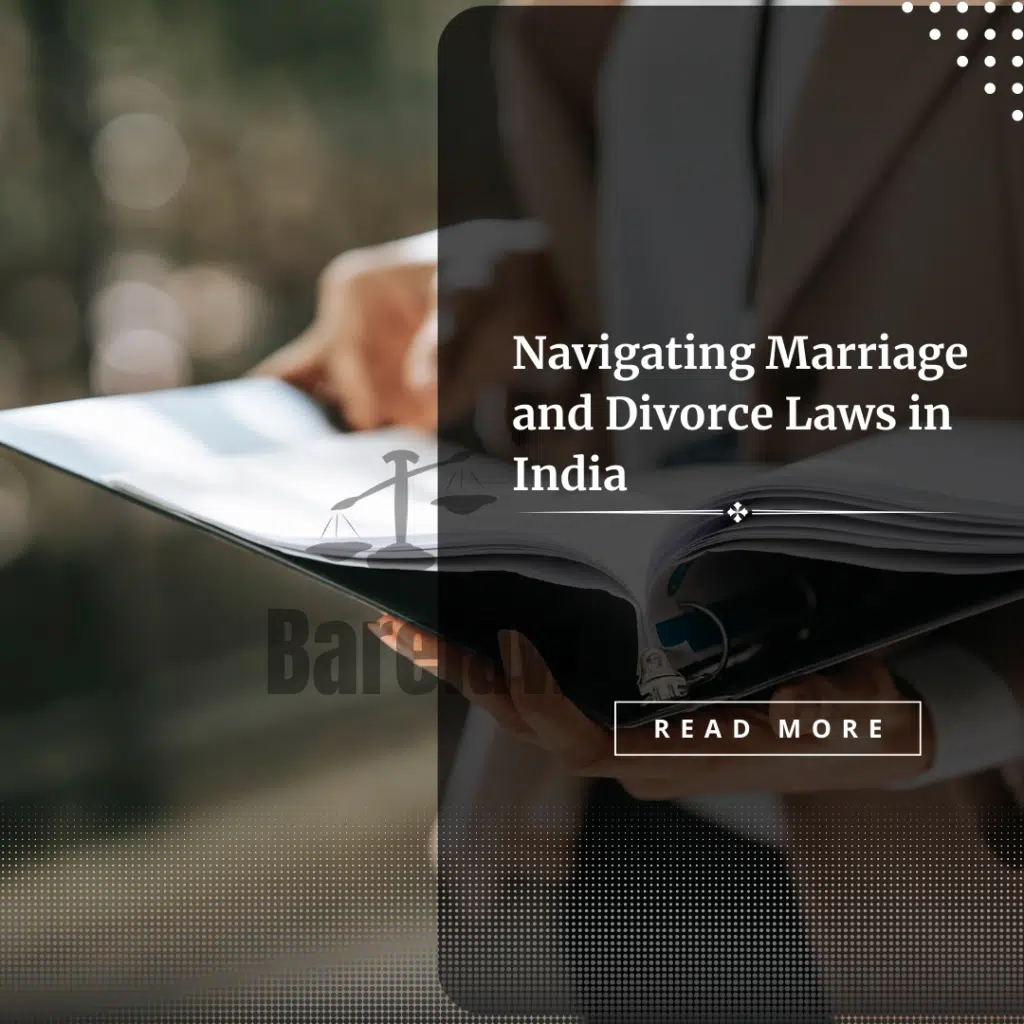
Table of Contents
Navigating Marriage and Divorce Laws in India
Navigating Marriage and Divorce Laws in India
Marriage is a blessed establishment which legally and emotionally binds people together. In India, where cultural and societal norms have great influence over family life, it is important to comprehend the legalities surrounding marriage and divorce. This write-up delves into the legal considerations prior to, during as well as after getting married; covering prenuptial agreements, divorce laws and child custody.
Legal Considerations Before Marriage
Couples should be aware of different legal aspects that can affect their relationship before tying the knot. Though prenuptial agreements are not recognized in India as they are in Western countries, couples may still make provision for financial arrangements, property rights etc through a “marriage settlement.” While these agreements are not legally binding on courts they can serve as guides whenever there arise disputes.
Marriage Registration
Registration marks the beginning of any legally recognized union in this country. Indian government acknowledges two laws under which marriages can be registered that is; Hindu Marriage Act 1955 applicable to Hindus Jains Sikhs Buddhists among others or Special Marriage Act 1954 concerning interfaith marriages and civil unions. The purpose of registering a marriage is to establish its legality and acts as an evidence in case there are any disagreements later on.
Legal Considerations During Marriage
Spouses need to know about their rights and obligations while being married according to Indian law. It should be appreciated that apart from other things such as inheritance rights joint ownerships over properties acquired during the marriage financial support among partners is also obligatory.
Divorce Laws and Legal Considerations
Despite attempts aimed at saving marriages sometimes it becomes necessary for couples with irreconcilable differences to divorce each other legally . Divorce laws in India vary depending on personal religious community laws governing them. Cruelty adultery desertion etc are some grounds upon which one can seek divorce under Hindu Marriage Act or Special marriage act.
It should be noted that if you obtain your divorce decree from foreign jurisdictions it may not automatically be recognized within Indian courts hence parties seeking for divorce should follow proper legal procedures in India to make their divorce valid.
Child Custody and Legal Considerations
Among all issues relating to separation or divorce child custody is by far the most delicate. When making decisions about who should have custody of the children, Indian courts take into account what would be in their best interests. The Guardians and Wards Act 1890 deals with matters pertaining to child custody although personal law might also come into play when determining arrangements for care of kids following such events.
Age preference of a child environmental suitability each parent’s capacity are just but few factors considered by judges during determination of whom between parents should be given physical possession (custody) as well as legal rights over them. Joint custody is increasingly being embraced where it meets welfare standards desired for every particular situation involving minors.
Legal Considerations After Divorce
Post-divorce consideration include alimony (maintenance) and property distribution. Maintenance can be awarded by an Indian court to a spouse who lacks sufficient means of sustenance; this is determined basing on various factors like income levels among others. Distribution of property depends upon ownership as well as contribution: joint acquisitions during marriage are usually shared equally while inherited or premarital assets may remain with their original owners unless otherwise agreed upon between parties concerned.
Conclusion
Marriage can be described as a contract between two people recognized by society with certain rights and duties towards each other hence regarded legally binding agreement thus enforceable likewise dissolution thereof may also require court intervention depending on circumstances surrounding such union unlike separation which might only demand mutual consent between spouses without necessary going through any formalities provided for in law.
It is advisable for couples facing these complex issues seek professional help or consult attorneys well versed in this field since changes continue being made within our society vis-à-vis matrimonial matters therefore individuals must remain updated as well make choices that best suit their situations.



